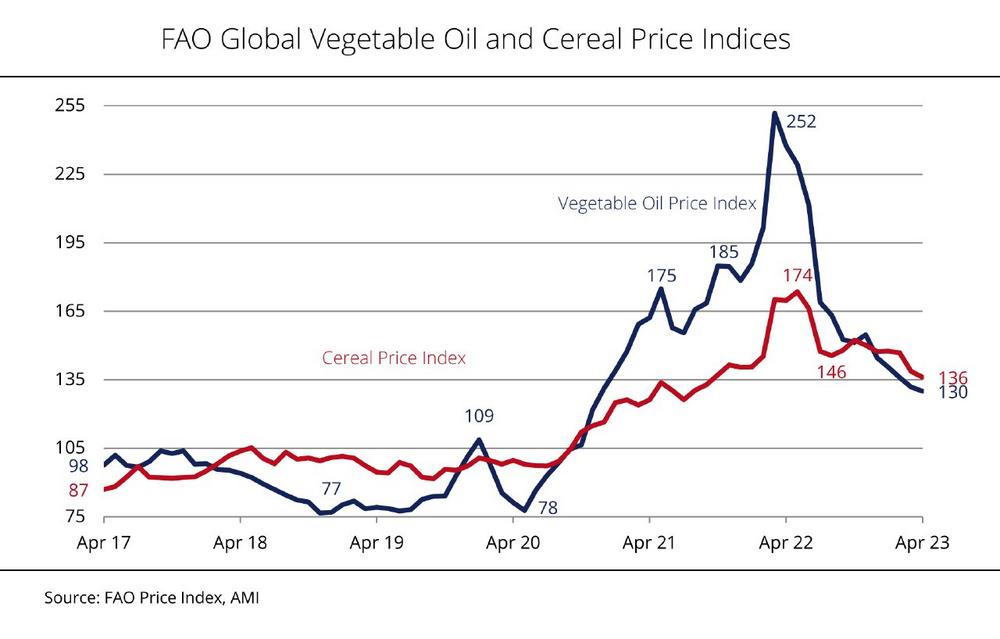
Vegetable oil prices slumped to pre-war level
After a brief upswing in March 2023, palm oil prices virtually remained unchanged in April, as the downward pressure from weak demand was almost offset by limited supply. In contrast, according to investigations conducted by Agrarmarkt Informations-Gesellschaft (mbH), asking prices for soybean oil continued to move downwards. The main factor driving the slide was the expected bumper crop of soybeans in Brazil, whereas drought and extreme heat limited the Argentine yield potential enormously, thus dampening the decline. At the same time, prices of rapeseed oil and sunflower oil continued their downward slide, especially as a consequence of the continued worldwide abundance of supply of exportable oils and seeds combined with restrained demand.
The FAO cereal price index averaged 136.1 points in April 2023. This was down 2.4 points (1.7 per cent) on the previous month and down as much as 33.5 points (just less than 20 per cent) from a year earlier. The decline in world market prices for important cereals outweighed the increase in prices for rice.
The Union zur Förderung von Oel- und Proteinpflanzen e. V. (UFOP) has noted that the price indices for vegetable oil and cereal have reached the level they had before Russia’s war against Ukraine began. The same applies to the April 2023 level of price increases for energy, fuels and fertilisers. The UFOP sees producer prices hitting a level that is economically critical for agriculturists in the European Union, given the current index level. As a consequence of the stabilisation of energy prices, producer prices for field crops need to increase generally to provide a basis for sustained production and diversified crop rotation. The association has emphasised that resilient crop rotation is primarily the result of economics.
The Union for the Promotion of Oil and Protein Plants e. V. (UFOP) represents the political interests of companies, associations and institutions involved in the production, processing and marketing of domestic oil and protein plants in national and international bodies. UFOP supports research to optimise agricultural production and for the development of new recycling opportunities in the food, non-food and feed sectors. UFOP public relations aim to promote the marketing of domestic oil and protein plant end products.
UFOP – Union zur Förderung von Oel- und Proteinpflanzen e.V.
Claire-Waldoff-Str. 7
10117 Berlin
Telefon: +49 (30) 2359799-40
Telefax: +49 (30) 2359799-99
http://www.ufop.de
GF
Telefon: +49 (30) 31904434
E-Mail: s.arens@ufop.de
![]()



